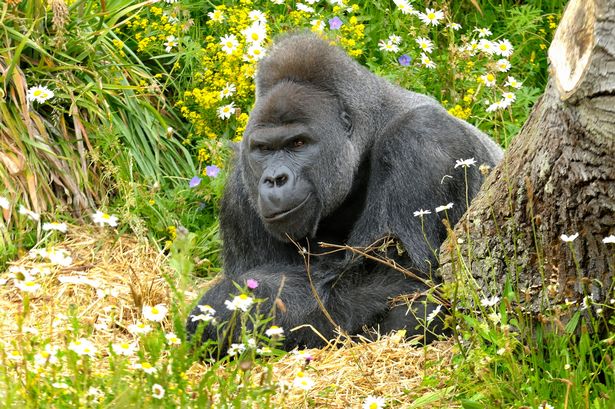The closure of Bristol Zoo Gardens in Clifton in September 2022 marked the end of an era for the beloved institution, but it also ushered in a period of vulnerability and distress for its remaining inhabitants. While the majority of animals were relocated to the Wild Place Project, a sister site with more spacious enclosures, a small group of gorillas remained at the Clifton site, awaiting the completion of their new, state-of-the-art home. This transitional period, intended to be a peaceful interlude, has been marred by a series of distressing incidents: repeated break-ins and intrusions onto the closed zoo grounds. These unauthorized entries have caused significant anxiety and disruption for the gorilla family, highlighting the challenges of maintaining security and animal welfare during a complex relocation process.
The incidents, described by Bristol Zoological Society staff as “really distressing,” have raised concerns about the psychological well-being of the gorillas. Gorillas, highly intelligent and socially complex primates, are sensitive to changes in their environment and routine. The unexpected presence of intruders, even if seemingly harmless, can be perceived as a threat, disrupting the group’s social dynamics and causing significant stress. The repeated nature of the intrusions further exacerbates this anxiety, preventing the gorillas from establishing a sense of security and potentially impacting their long-term well-being. This underscores the critical importance of maintaining a secure and predictable environment for animals in captivity, especially during vulnerable periods like relocation.
The situation at the former Bristol Zoo Gardens highlights the broader challenges associated with managing closed zoological facilities. While the main focus understandably shifts towards the new location and the integration of relocated animals, the responsibility for the remaining animals and the security of the site persists. Factors like reduced staffing, limited public access, and the general perception of abandonment can create opportunities for unauthorized entry and vandalism. The break-ins at the Clifton site serve as a stark reminder of the need for robust security measures, even after a zoo’s official closure, to protect both the animals and the integrity of the facility.
The Bristol Zoological Society, responsible for both the Clifton site and the Wild Place Project, has taken steps to address the security breaches. While the specific details of these measures remain undisclosed for security reasons, the Society has emphasized its commitment to the welfare of the gorillas and its determination to prevent further incidents. This likely involves enhanced surveillance, increased patrols, and potentially strengthening physical barriers to deter future intrusions. The ongoing situation emphasizes the delicate balance between maintaining public trust and ensuring the safety and security of animals, particularly in urban environments where human-wildlife interactions are more prevalent.
Beyond the immediate security concerns, the break-ins at the Clifton site also raise broader questions about the ethical considerations of keeping great apes in captivity. While modern zoos increasingly prioritize conservation, education, and animal welfare, the confinement of intelligent and socially complex animals like gorillas remains a subject of debate. Incidents like these intrusions, which directly impact the animals’ well-being, fuel arguments against captivity and highlight the inherent vulnerability of animals within these environments. The transition period for the gorillas at the Clifton site underscores the importance of minimizing stress and ensuring a smooth and secure relocation process to mitigate the potential negative impacts of captivity.
The story of the gorillas at the closed Clifton zoo site serves as a poignant reminder of the ongoing challenges facing zoos in the 21st century. Balancing conservation efforts, animal welfare, security concerns, and public engagement requires a dynamic and multifaceted approach. The incidents at Clifton underscore the need for proactive security measures, particularly during transitional periods, and highlight the ethical responsibilities of zoological institutions to prioritize the well-being of the animals in their care. As the gorillas await their transfer to their new home, the focus remains on ensuring their safety, minimizing disruption, and providing the best possible environment for these magnificent creatures. The incidents at the closed zoo serve as a valuable learning experience, prompting reflection on how to best navigate the complex challenges of managing vulnerable animals in an increasingly interconnected world.














